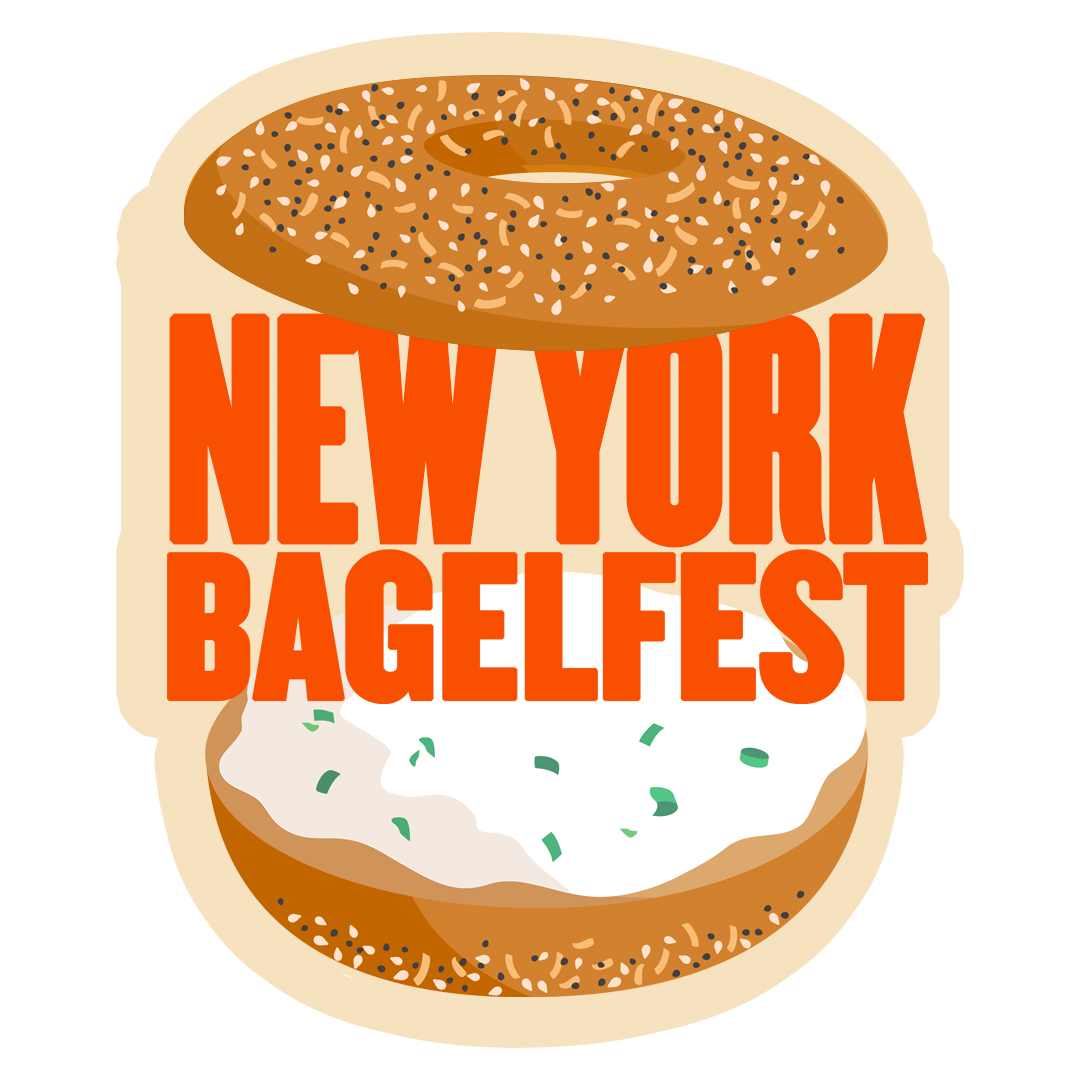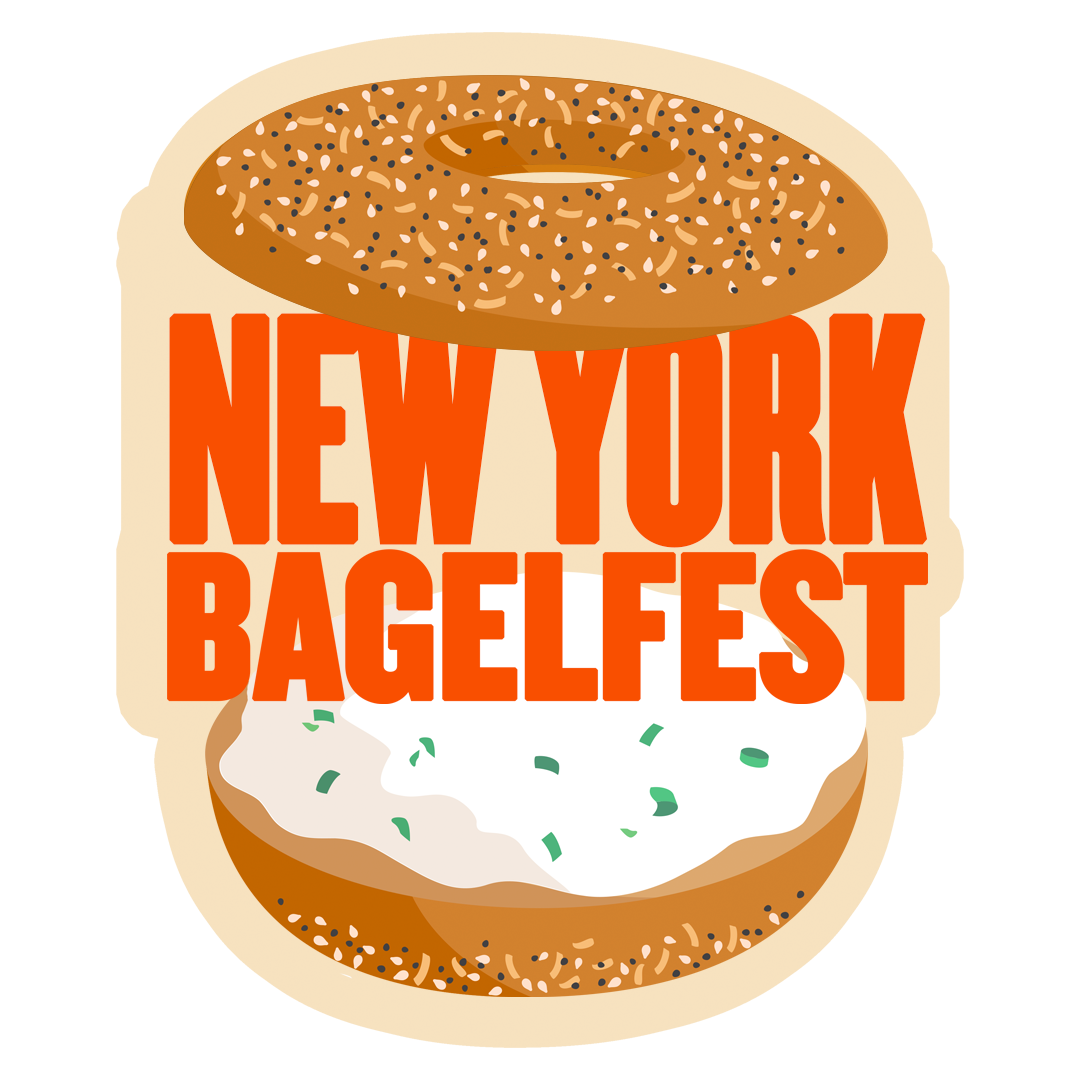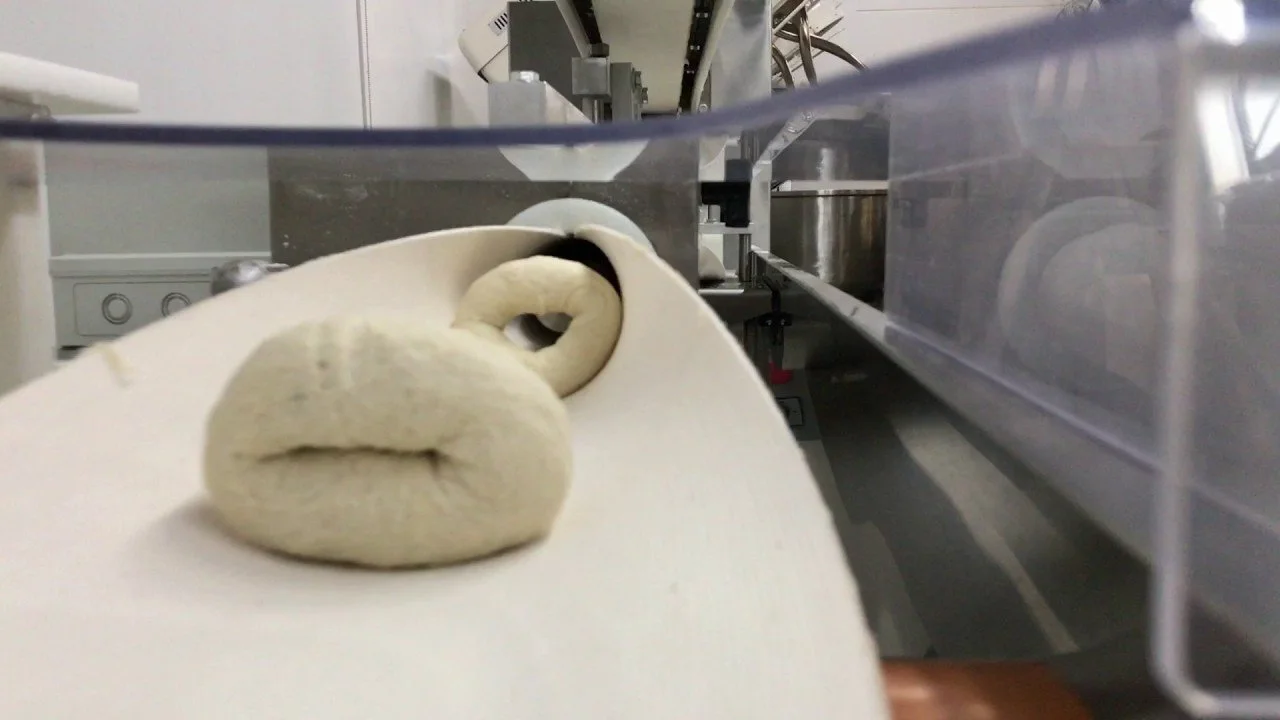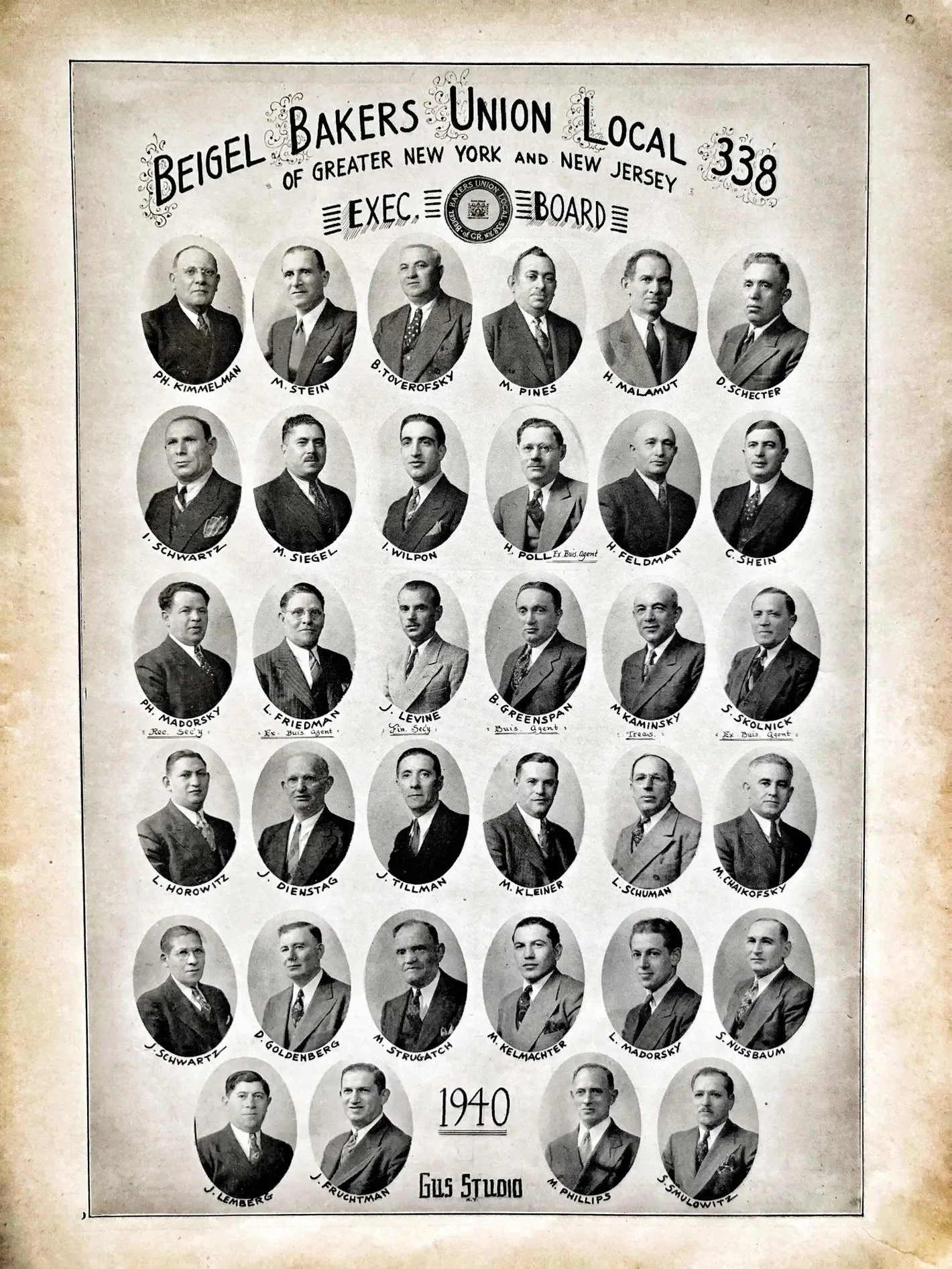Bagel Rollers: The Masters Behind NYC's Iconic Delicacy
The Unsung Heroes of the Bagel Industry
The New York Times recently highlighted the intriguing story of Celestino Garcia, a bagel roller for Tompkins Square and Court Street bagels, as a part of Priya Krishna’s “On the Job” video series. It’s a fantastic look inside the life of a New York City bagel roller, the highly-skilled artisans who are the heartbeat of the bagel industry. Bagel rollers are the ones who mix and mold dough into the perfect ringed delights we all know and love. It's refreshing to see a publication like the Times drawing attention to these masters of the craft.
Below we summarize key takeaways from the video, and clarify five misconceptions about bagel rollers inspired by the video’s comment section.
Hand-Rolled vs Machine-Rolled: Why It Matters
Bagels being formed in a bagel rolling machine
The first question to address: why do we even need bagel rollers? The answer lies in the long-standing debate between hand-rolled and machine-rolled bagels. Many believe that the former yields a superior product.
“It is said that bagels made by hand create a stronger gluten structure, which leads to a light and chewy interior, rather than machined bagels, which result in a dense, cake-like texture,” Priya explains in the video.
“The problem with the machines is their bagels are too perfect. They all look the same. So everything winds up looking like a Krispy Kreme donut, this perfectly round thing,” shop owner Peter Shelsky told Atlas Obscura.
While bagel rolling machines can produce twice as much in half the time, the best bagel shops still employ bagel rollers because of their belief that it is a better product.
How many bagels does a roller Make?
In this video, Celestino says he makes 25,000 bagels during a busy week. That’s over 3,500 bagels per day.
In a different profile of a bagel roller, Anne Kadet’s “Alex Baka Rolls Three Million Bagels a Year!”, she estimates that Alex Baka rolls 3,000,000 bagels per year. That’s roughly 60,000 bagels per week, or about 8,500 bagels per day.
That seems like an absurd number of bagels, but as you can see in this video, master bagel rollers can roll at a rate of one bagel every three seconds;
The Freelance Nature of Bagel Rolling
In order to understand the unique craft of bagel rolling in New York City, it's essential to highlight the largely freelance nature of the occupation. Most bagel rollers in the city operate as independent contractors, maintaining relationships with multiple bagel shops. This model of employment is largely influenced by the fluctuating demand that varies from shop to shop.
Demand in the bagel industry is calculated on a per-day basis. Bagel shops only require a certain quantity of bagels each day to meet their customer demand. This results in a dynamic where consistent, full-time work is not always guaranteed at a single location. To compensate for this inconsistency and ensure a steady income, bagel rollers often juggle multiple clients, moving from one shop to another throughout their working week.
An interesting aspect of bagel roller compensation is that it is typically based on the bag of flour rather than an hourly wage. This incentivizes speed and efficiency, as the more bags of flour a roller can transform into bagels, the more they earn. This pay structure reflects the physical labor and skilled craft that goes into each bag of bagels and rewards those who have mastered the art of rapid, yet quality, bagel production.
However, there are exceptions to this freelance model. Shops that generate a high volume of bagels, especially those managing multiple locations, have the resources and demand to employ bagel rollers on a full-time basis. This provides a degree of job security that is not always found in the bagel rolling industry. The decision to hire full-time employees is often influenced by the desire for consistency in the product, as the same hands rolling the dough each day can help ensure a steady quality of bagels.
5 Misconceptions About Bagel Rollers
Despite the appreciation for the profession, several misconceptions about bagel rollers persist. Here are five such misconceptions to clear up:
Bagel rollers aren’t paid a fair living wage: contrary to the belief that bagel rollers aren't paid fairly, they can actually be among the highest-paid workers in a bagel shop. Given the high demand and few skilled professionals, bagel rollers have significant leverage. Some even earn a six-figure income. Should they be paid more? In an ideal world, of course! Everyone should make more money for their skills! However, the reality is that most NYC bagel shops, their employers, are small businesses doing their best to get by.
Bagel rollers have to work multiple jobs to survive because they’re underpaid: Bagel rollers are paid by the volume of bagels they produce. Most bagel shops don’t sell enough bagels for a roller to make a living off rolling for that shop alone. Thus, many rollers maximize their schedule and output by working for several shops to increase their compensation. Yes, many have to work multiple jobs, but not because they’re underpaid at any one shop, but because the shop only has so much work for them to do.
Early morning hours are a brutal job requirement: In the Times video, Celestino wakes up at 2:30am to get to work. Because bagel rollers are freelancers, they can dictate their own schedule. Some, like Celestino, start early, while others prefer late afternoon to late night shifts. Early hours of the job aren't a drawback but rather a choice.
They can’t afford to take vacations or breaks: In the Times video, it’s mentioned that Celestino hasn’t taken a vacation in years and rarely takes breaks. Again, the freelancer nature of the job means rollers can take time off at their discretion. Some might choose to take an extended break, while others prefer continuous work. At the end of the day, it’s up to individual preference.
Since bagel rollers are the key to making great bagels, they should open their own shops: running a business is entirely different than rolling bagels. It’s silly to assume that because someone is a master at his job as an individual contributor, that means they should leapfrog to opening a business that requires so many other and different skillsets. While some rollers might harbor entrepreneurial ambitions, many are content mastering their craft.
Celestino: A Bagel Roller at the Heart of NYC
Celestino Garcia rolling bagels in the basement of Tompkins Square Bagels
Celestino acknowledges that rolling bagels is hard work, but seems to truly enjoys his craft. While the wages could always be better, it’s crucial to understand that bagel rollers are not employees of a corporate giant but are an integral part of small, family-run businesses. Here is additional context from Tompkins Square Bagels owner Chris Pugliese from the video’s comment section:
“Hello to all. I am grateful to have Cele and his family at my shop. And while it is heartwarming to see all the concern for Cele and his well being, I felt a few facts not mentioned in this story should be stated. Like most NYC dough rollers, Cele is extremely well compensated. While I am not going to post the man's salary on a public forum, I will say that these folks are extremely skilled AND yes, they work physically hard. That is not a combination you see often. As a result, they are highly sought after. NYC rollers can easily make low 6 figure salaries depending on how many shops they choose to work with. They are freelancers. They make their own schedules and set their own hours. A guy like Cele can basically walk into any decent NYC shop and pretty much name his price. Cele is among those top tier people. The fact that he has chosen to stick with me since I've opened my doors AND felt comfortable enough to entrust me to employ both of his children for the past 5 years (Both amazing human beings by the way) is one of the markers I can use to know that I am living my life and running my stores the right way. Lastly, while I can not speak for what takes place at his other job, I can say that Cele works for us 3-4 days per week. Usually around 4 hours per day. He is his own boss, works at his own pace, and comes and goes as he pleases. There have been a few comments here about his work space. The basement filmed in this story is 2000 square feet. To put that into perspective, it's about 800 square feet larger than the place my family of 3 currently reside It's large and well lit as far as NYC restaurant basements go . I know this man for 30 years. We worked together at other shops and come from the same neighborhood. We are both Gen X'ers and I think one of the reasons we enjoy being around each other is because we share a work ethic and a belief that everything matters. .There's a mutual respect. It is heartwarming to see all the love going Cele's way but I would like to say that a few of the comments I've seen here where people are just assuming the worst have been hurtful and quite insulting to someone who has made a conscious effort to always treat people (especially the folks who help you reach success) with kindness and respect. I'm a small business owner. I am not building rockets and flying them around the globe for fun. Like most of my staff, I too am out there scrapping away day in and day out. Putting in the hours, working hard at something I love to do which makes it not all that hard. We are NYC restaurant people. It's what we do. I am grateful to have people like Cele work with me. As I said when I was interviewed by Priya (Sadly it didn't make the cut) NYC still exists because of people like Cele. They carried NYC on their backs throughout the entire shutdown of 2020/2021. My place would not exist if not for my staff's hard work and dedication. They stood with me when they could've easily walked away. Not one day does that ever escape me. My staff and I are bonded in way that only people who went through those days together could ever understand. We are family.”
The Rich History of NYC's Bagel Rolling Community
The art of bagel rolling in New York City holds a remarkable legacy that originates from the formation of the Biegel Baker’s Union Local 338 in the early 1900s. Once a craft primarily undertaken by Jewish immigrants, it has progressively branched out to include other immigrant communities. This shift is partially due to an intriguing historical event - in the 1990s, the Thai government invited members from Local 338 to train Thai locals in the craft, enriching the cultural tapestry surrounding bagel rolling.
The bagel is a symbol of the seamless blending of cultures and the evolution of culinary traditions. Each roll and twist carries the weight of history and the spirit of diverse communities coming together in pursuit of this time-honored craft. As you enjoy your next bagel, appreciate Celestino, and the centuries of hands, heritage, and history that have contributed to its creation.
Ever been captivated by the idea of rolling bagels like Celestino? Yearning to meet a true artisan bagel roller? We've got you covered. Join our NYC Bagel Tour for an immersive experience, including hands-on bagel rolling sessions with an expert on Thursdays or Saturdays. Alternatively, enroll in our Perfect Bagel Baking Workshop, where you'll master the technique of making authentic New York-style bagels from scratch. Learn more about our immersive Tours & Workshops here.




